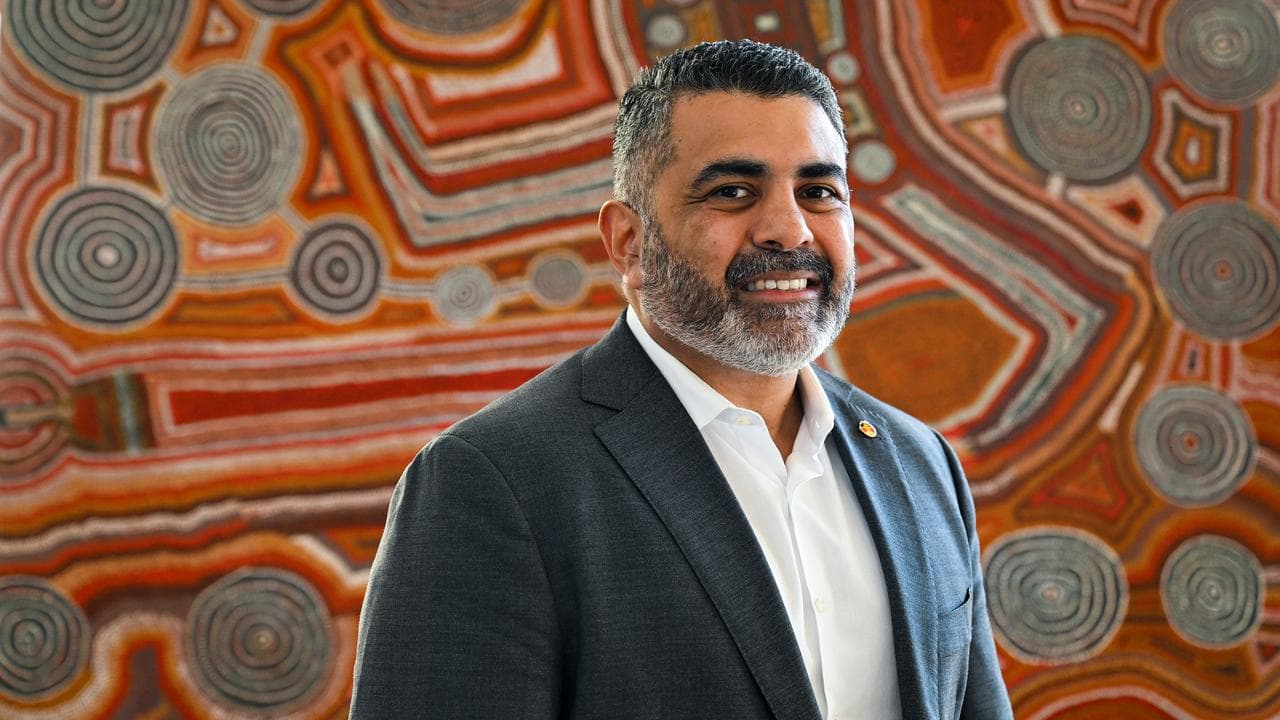
Starting a new job can be daunting for anyone, but when Justin Mohamed began his first day as Australia's First Nations Ambassador he had the added pressure of being the first in the world.
"Because it's the first, both in Australia and globally, there's there's no real blueprint," Mr Mohamed told AAP.
"We can't head off over to another country to get a sense of how they established or what their priorities were or the path they walked.
"So, although it's very exciting, it comes with a bit of responsibility to ensure the first steps we take are the right ones."
Since his appointment was announced by the federal government in March, Mr Mohamed has embarked on a listening tour to connect with Aboriginal and Torres Strait Islander communities around the country.
Mr Mohamed is a Goreng Goreng man from Bundaberg in Queensland and previously worked as a high-level public servant and at Indigenous organisations.
He has represented Indigenous organisations internationally including at the United Nations Permanent Forum on Indigenous Issues.
Mr Mohamed believes his role is one of the few created by any Australian government to hear directly from First Nations communities about what is working.
"It's been quite refreshing for communities when I pose that question - the conversation goes to a different level about self-empowerment, self-determination and how they can contribute to some of these really major challenges we have, not only as a country but globally, especially in climate," Mr Mohamed said.
"We haven't got all the details nailed down because it is brand new, but we are really making sure we are listening to our First Nations people and are courageous about what we do in this space."
One of Mr Mohamed's first official international duties was to address the UN Permanent Forum on Indigenous Issues in New York in April.
"The response I've had globally from many other First Nations groups, but also governments, has been really warm and curious," he said.
"That forum has really helped with the growth globally in the valuing of First Nations' experiences and their contribution to global issues."
While in the US, Mr Mohamed met with other international Indigenous representatives, including First Nations people from North America, New Zealand, the Pacific and South America.
"In the Pacific area the news has been received very well that there is going to be more of a First Nations approach to foreign affairs," he said.
"With countries that have First Nations people that have strong cultural practices and traditions, hopefully, we will be able to respect that in our conversations and how we do business from now on."
During his travels around Australia, Mr Mohamed paid a visit to the Torres Strait.
"We were talking about how climate has been affecting them there and also the treaty with Papua New Guinea," he said.
International ambassadors represent their country's interests - but in the case of Australia's First Nations Ambassador a key question is what happens if Australian Indigenous people's interests are at odds with the Commonwealth?
For example, two Torres Strait Islander elders have taken the federal government to court claiming inaction on climate change is putting their islands at risk.
"My role is not to intervene or play a part in that sort of thing," Mr Mohamed said.
"It's my role to observe what's happening on our domestic front so when I do speak internationally my words present the truest reflection of what is happening here in Australia for First Nations people, including in climate, human rights and a whole range areas."
The ambassador will not play a part in the upcoming referendum on a First Nations voice, which will be held between mid-August and late December.
"However, part of my part of my role is to look at the journey leading up to the referendum, and also what happens after, and how we can communicate that globally as the world is watching us," Mr Mohamed said.
THE ROLE OF FIRST NATIONS AMBASSADOR:
* To lead the Office of First Nations Engagement within the Department of Foreign Affairs and Trade
* To work in partnership with Aboriginal and Torres Strait Islander people to progress Indigenous rights globally, and help grow First Nations' trade and investment
* To elevate the perspectives of First Nations people to enable deeper engagement with other countries, including Pacific nations
* The position ensures, for the first time, that Australia will have a dedicated Indigenous representative when engaging internationally




